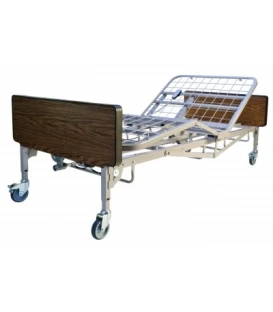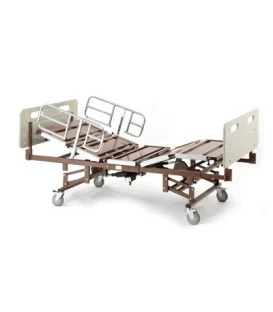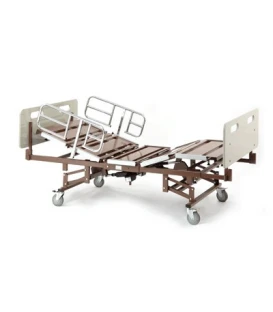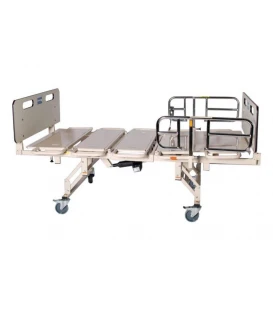Bariatric Home Hospital Beds: A Comprehensive Guide for Informed Choices
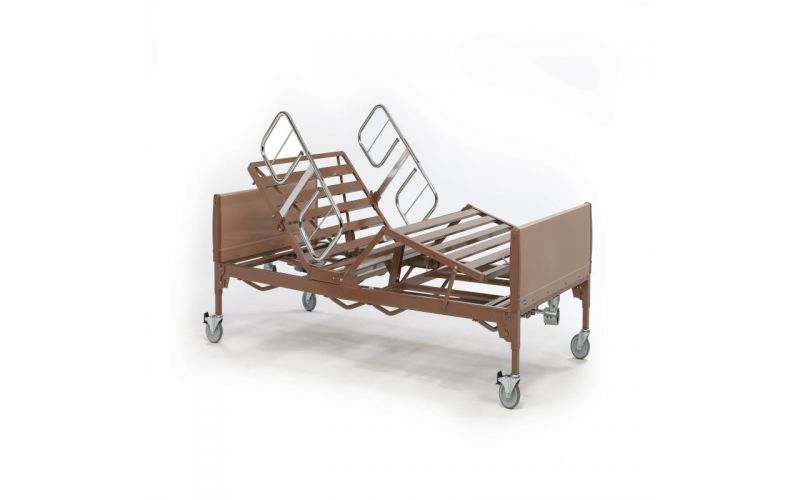
Bariatric care is an integral aspect of modern healthcare, necessitating specialized equipment to accommodate individuals who are overweight or obese. Among the most crucial pieces of bariatric care equipment is the home hospital bed. These beds cater to specific needs, providing comfort, support, and improved mobility for users. However, navigating the market can be a challenge without a clear understanding of the essential features to look for in a bariatric home hospital bed. This comprehensive guide aims to shed light on the necessary factors to consider when making an informed choice.
Understanding Bariatric Home Hospital Beds
Bariatric home hospital beds, much like standard hospital beds, are specifically designed to provide a high level of comfort and mobility. They distinguish themselves by their enhanced weight capacity, greater width, and reinforced structure to adequately support bariatric patients. These beds are typically equipped with electronic controls for effortless adjustability, offering a wide array of positioning options to accommodate various care needs.
Key Factors to Consider
Weight Capacity
The first and foremost consideration is the bed's weight capacity. Bariatric beds should comfortably and securely accommodate the user's weight. It is essential to ensure the chosen bed's weight capacity exceeds the user's weight, providing a safety margin. Standard bariatric beds typically hold up to 600 pounds, but some models can accommodate weights up to 1000 pounds or more.
Size
Bariatric beds are generally wider than standard hospital beds, offering additional space for comfort. The width can range from 42 to 60 inches, compared to the standard 35 to 36 inches. The extra space can make a significant difference in comfort, freedom of movement, and ease of care.
Bed Height Adjustability
Adjustable bed height is an essential feature for both the patient and the caregiver. For patients, lower heights can make getting in and out of the bed easier and safer. For caregivers, a higher setting can ease the physical strain when providing care. Look for beds with a broad height adjustability range and easy-to-use controls.
Positioning Options
High-quality bariatric hospital beds offer multiple positioning options, including elevating the head or foot of the bed, or adjusting the bed into a chair-like position. This adjustability can aid in various care tasks, enhance comfort, and alleviate certain health conditions like acid reflux or circulatory issues.
Mattress Quality
A good quality mattress can significantly impact the user's comfort and health. Bariatric mattresses are usually foam or air-filled and must be chosen carefully to support the patient's weight, relieve pressure points, and prevent bedsores. Some advanced models also offer alternating pressure or low air loss features to enhance comfort and prevent skin-related issues.
Safety Features
Bariatric beds often come with safety features such as side rails to prevent falls and secure the patient during positional adjustments. Additionally, consider models with an emergency power-down function in case of power outages.
Mobility Features
Many bariatric beds come with casters that allow easy movement across the room or home. These should come with a locking mechanism to ensure the bed stays stable when stationary.
User-Friendly Controls
Controls should be easy to understand and use, enabling the patient or caregiver to adjust the bed effortlessly. Consider beds with remote controls for more accessible and comfortable operation.
Other Factors to Consider
Cost and Insurance
Quality bariatric beds can be costly, but it is an investment worth making for the user's comfort and well-being. Discuss with your insurance provider about coverage for home medical equipment, as many insurance policies partially or fully cover these costs.
Installation and Maintenance
Ensure the bed can be easily installed and maintained. Ask about after-sales service, warranty, and any regular maintenance required. Some companies offer professional installation and routine maintenance services, which can be beneficial.
Professional Consultation
It's advisable to consult with healthcare professionals such as doctors or occupational therapists when selecting a bariatric bed. They can provide insights based on the patient's specific health conditions and needs.
Conclusion
Choosing a bariatric home hospital bed is a significant decision that can impact the quality of life for patients and caregivers alike. By considering the key factors, including weight capacity, bed size, adjustability, mattress quality, and safety features, you can make an informed choice that meets the patient's specific needs.
Remember that a higher price tag does not always equate to a better product. The right bed is one that offers a balance of comfort, support, safety, and convenience, meeting the user's unique needs.
Lastly, don't hesitate to seek professional advice and make the most of available resources when making your decision. With the right knowledge and careful consideration, you can find a bariatric bed that significantly enhances the patient's quality of life, providing the comfort and support necessary for optimal health and well-being.











